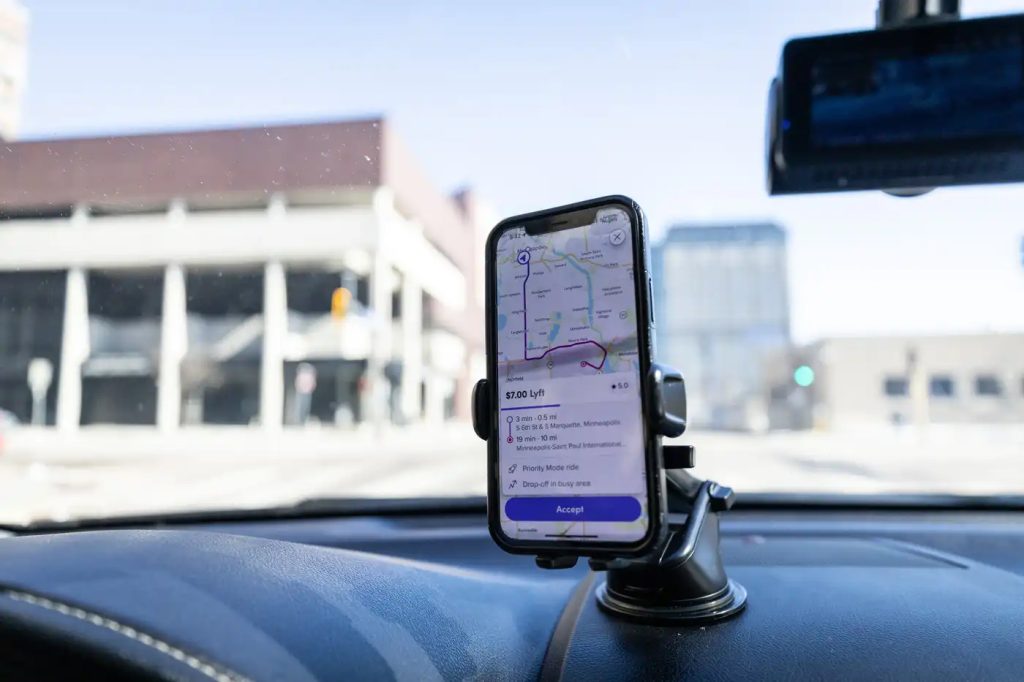Which Companies are Planning to Replace or Compete with Uber and Lyft?
Published Thursday, May 23rd, 2024
Written by Hussain Ali Haidari

Legislators in Minnesota are drafting a proposal to set a minimum wage for Uber and Lyft drivers. Based on the current proposal, the new minimum would be set at $1.27 per mile and $0.49 per minute statewide. If the proposal is approved by the Minnesota legislature and approved by the Minnesota governor, Uber and Lyft would be required to pay their drivers based on the new minimum
However, Uber and Lyft have threatened to stop operating in Minnesota if the proposal passes. Following the threat of these companies, several other companies announced that they will operate instead of Uber and Lyft. MyWeels and Wridz are two companies that have obtained the license to operate in the city of Minneapolis. Wridz released a statement saying that it is ready to provide service in the current week. The license fee for transportation companies in Minnesota is about $40,000 plus an additional $10,000 for a wheelchair. Carriers need separate licenses to operate at Minneapolis and Saint Paul airports.
MyWeels company has paid $10,000 security deposit and $500 application fee to start operating in the Minneapolis and Saint Paul airport. This company has also said that it applied to operate in Saint Paul city, but its application has not been approved yet. According to this company, the cost of obtaining a license is more than 41 thousand dollars. At the same time, the city of Minneapolis has said in a statement that it has issued an operating license for MyWeels and Wridz companies. Although these two companies have received their operating license, there are still many concerns about whether these two companies can take the place of Uber and Lyft or not.
Baer, the founder and CEO of Minnesota-based MyWeels said to MPRnews said that this company’s application is similar to Uber and people can request transportation from it. According to Baer, the manager of this company has registered about 100 drivers to start working. He added that the drivers get about 75 percent of the money. This company has expressed hope that this percentage will increase over time. At the same time, Steve Wright the founder and CEO of Wridz company said that they charge a monthly membership fee of one hundred dollars from their drivers, who keep 100 percent of their fares and tips. According to him, drivers are like customers and can “pause” their subscription with Wridz at any time.
Currently, Wridz company operates in 9 states of America, including Texas. In the past, there were concerns about keeping people’s data with Uber and Lyft, but the founders of these two companies say that they do not keep customer data, although some rider data is kept by the credit card company. The drivers who apply to work in these two companies must pass their security history successfully. The final decision of Uber and Lyft regarding leaving Minnesota is still unknown.
The New American Education Summit
Written by Sayed Nawid Rai
The New American Education Summit, which took place on May 9, 2024, at the Delta Hotels by Marriott Minneapolis Northeast, represented a significant milestone in the collective endeavor to empower newcomers in the realm of education. With its overarching theme, “Bridging Opportunities: Empowering Newcomers in Education,” the summit aimed to confront the unique hurdles encountered by newcomer students and families while exploring inventive solutions to promote their academic achievement and societal integration. This single-day event united approximately 300 school leaders, English Learner coordinators and teachers, district coordinators, state agency leaders, and community partners with the shared goal of delving into best practices, exchanging insights, and fostering collaboration on innovative strategies to support new students and families within our educational institutions.
This Summit was made possible by the interagency between the Minnesota Department of Education (MDE) and the Department of Human Services – Refugee and Resettlement Office (DHS-RPO), exemplifying the joint commitment of these entities to bolstering newcomer communities statewide.
The day commenced with Registration and Networking in the bustling ambiance of the Minneapolis Foyer. Participants arrived, registered, and engaged in networking activities while enjoying light refreshments. Volunteers at the registration table meticulously tracked the number of attendees, ensuring a seamless check-in process. As attendees mingled, two performer groups, namely the Thai Cultural Council Dance Group and the Somali Museum, captivated the audience and set the stage for an inspiring day ahead.
Formal proceedings commenced with a Presentation of the flag and the National Anthem by Johnson High School’s Color Guards, followed by a Welcome Address delivered by Nawid Raai, the New American Education Program Specialist. Nawid introduced the summit, outlined the agenda, and shared his personal journey of resettlement while articulating the day’s objectives. The significance of the event was further underscored by Commissioner Willie Jett and Commissioner Jodi Harpstead, who stressed the imperative of inclusive education for all learners.
The keynote address by Lorena Mancilla of the Migration Policy Institute underscored the critical need for cultivating spaces of belonging for newcomer students and their families. Mancilla’s insights paved the way for a thought-provoking panel discussion on Best Practices in Newcomer Education. Distinguished panelists, including Esteban Cadena, Dr. Lorena Mancilla, Arif Bakar, Peng Yang, and Dr. Abdisalam Adam, shared successful initiatives aimed at supporting new students and families in navigating the education system.
A Morning Break provided attendees with an opportunity to network and refresh before the Virtual Plenary Address by Juliana Urtubey, the 2021 National Teacher of the Year. Urtubey’s presentation on “Cultivating a Joyous and Just Education for All” inspired participants to prioritize equity and inclusion in their educational practices.
The Networking Lunch, accompanied by performances by Hmong American spoken word artist Kevin Yang and traditional Thai dancers, facilitated further discussions and connections among attendees. Concurrent sessions in the afternoon delved deeper into topics such as resilience-building, mental health support, and academic empowerment for newcomer students.
A highlight of the summit was the Panel Discussion on Empowering Student Voices moderated by Tea Rozman from Green Card Voices. Student representatives shared their experiences, challenges, and recommendations for improving support and opportunities for newcomers in the education system.
The day concluded with a Summit Conclusion and Next Steps session led by Nawid Raai, where key takeaways were summarized, and actionable plans were developed to better support newcomer students and families in schools and organizations across the state.
In essence, the New American Education Summit epitomized the power of collaboration, innovation, and advocacy in bridging opportunities and empowering newcomers in education. By convening stakeholders from diverse backgrounds, the summit laid the groundwork for transformative change in the lives of newcomer students and families.
